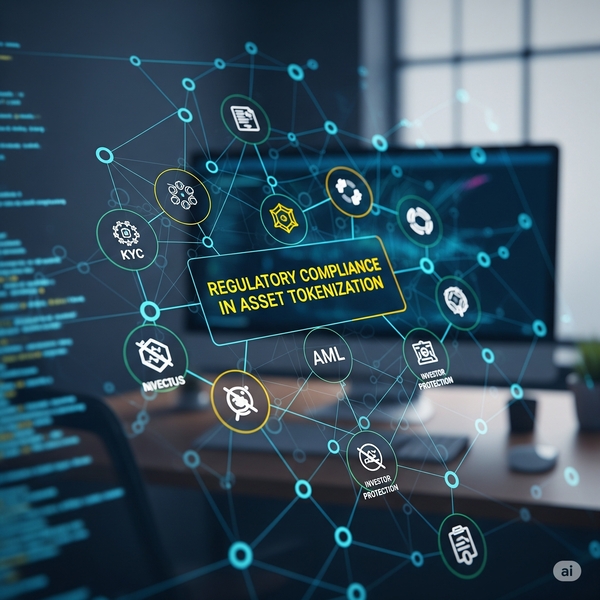The tokenization of real-world assets represents one of the most significant innovations in finance since the advent of electronic trading. However, with great innovation comes great responsibility—particularly when it comes to regulatory compliance. Understanding and navigating the complex regulatory landscape is crucial for any successful tokenization initiative.
The Regulatory Foundation
At its core, most tokenized real estate represents securities under existing financial regulations. This fundamental classification means that tokenization platforms must comply with the same rigorous standards that govern traditional securities markets, including registration requirements, investor protections, and ongoing disclosure obligations.
The key regulatory frameworks that govern tokenized securities include:
- Securities Act of 1933: Governs the initial offering of securities, requiring registration or qualification for an exemption
- Securities Exchange Act of 1934: Regulates secondary market trading and ongoing reporting requirements
- Investment Company Act of 1940: May apply to certain tokenization structures
- Bank Secrecy Act: Requires anti-money laundering (AML) compliance
Know Your Customer (KYC) and Anti-Money Laundering (AML)
Robust KYC and AML procedures are fundamental to compliant tokenization. These processes serve multiple purposes, including regulatory compliance, fraud prevention, and risk management.
Investor Verification
Every investor must be properly identified and verified before they can participate in tokenized offerings. This process includes:
- Identity Verification: Collecting and verifying personal information, including name, address, and government-issued identification
- Background Checks: Screening investors against sanctions lists and other risk databases
- Accreditation Verification: For offerings limited to accredited investors, verifying that investors meet income or net worth requirements
- Source of Funds: Understanding and documenting the source of investment funds
Disclosure Requirements
Tokenized real estate offerings must provide comprehensive disclosure to investors, including:
- Property Information: Detailed information about the underlying real estate
- Investment Structure: Clear explanation of the tokenization structure and investor rights
- Risk Factors: Comprehensive disclosure of all material risks
- Financial Information: Historical and projected financial information
- Management Information: Information about platform operators and key personnel
Cross-Border Compliance
The global nature of blockchain technology creates unique challenges for regulatory compliance, as tokenized offerings may be accessible to investors in multiple jurisdictions, each with their own regulatory requirements.
Platforms must carefully consider which jurisdictions their offerings will be available in and ensure compliance with all applicable laws and regulations.
Technology and Compliance Integration
Smart contracts can be programmed to automatically enforce compliance requirements, including:
- Investor Verification: Automatically verifying that investors meet eligibility requirements
- Transfer Restrictions: Enforcing holding periods and other transfer restrictions
- Disclosure Delivery: Ensuring that required disclosures are delivered before allowing investments
- Reporting Automation: Automatically generating required reports and filings
Best Practices for Compliance
Successful tokenization platforms implement comprehensive compliance programs that include:
- Written Policies and Procedures: Comprehensive written policies covering all aspects of compliance
- Compliance Officer: Designated compliance officer with appropriate authority and resources
- Training Programs: Regular training for all personnel on compliance requirements
- Regular Audits: Internal and external audits to ensure compliance effectiveness
Conclusion
Regulatory compliance in asset tokenization is complex but manageable with the right approach, expertise, and technology. The key to successful compliance lies in understanding that tokenized assets are subject to the same fundamental regulatory principles as traditional securities, while also addressing the unique challenges created by blockchain technology.
At RealPort, we view compliance not as a burden, but as a foundation for building trust and legitimacy in this exciting new asset class. Our comprehensive compliance program ensures that we can provide our investors with access to tokenized real estate opportunities while maintaining the highest standards of regulatory compliance and investor protection.




